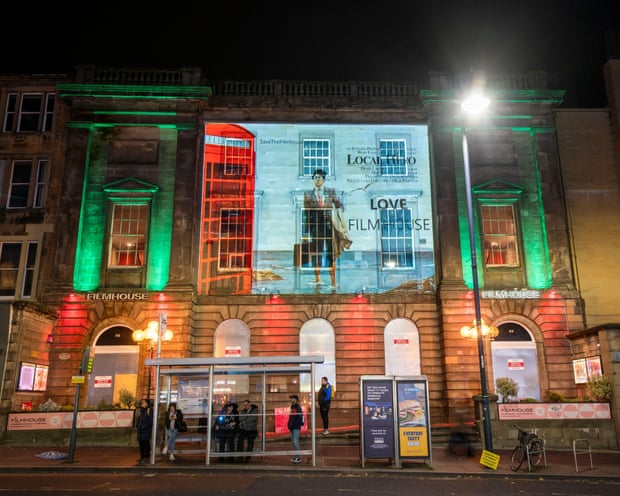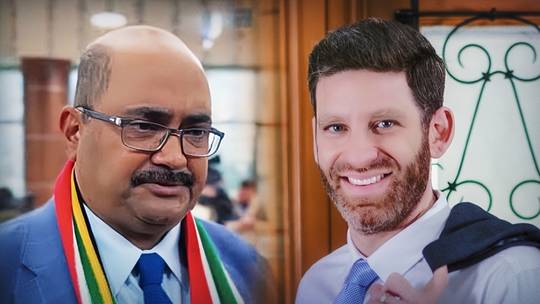Edinburgh’s Filmhouse banks on celluloid as it reopens after three years
Desire for analogue seen as key to success as cinema opens its doors again after a campaign backed by Brian Cox

One of the UK’s most famous independent cinemas, the Filmhouse in Edinburgh, is banking on a surge of interest in celluloid film screenings when it reopens after a three-year closure.
The Filmhouse reopens later in June with a promise to put on 70mm film versions of the recent blockbusters Oppenheimer and The Brutalist, and other major films, to capitalise on growing interest in analogue screenings.
Andrew Simpson, its new executive director, said audiences increasingly wanted “films on film” – a trend similar to the renaissance for vinyl LPs. “There is an experience of watching film on film that can’t be replicated by digital cinema, despite the advances of that technology,” he said.
“It provides a unique experience. You know, the grade, the colour spectrum – it’s a completely different experience. Audiences want things which are real and authentic and connect them with the history of the media.
“The Filmhouse is a venue that is able to offer that experience in a way that few other venues can.”
The cinema, which will have four screens, is reopening after a major community-led campaign to save it, launched by senior staff and board members when it closed suddenly in October 2022 after a financial crisis.
Simpson, hired from the Tyneside cinema in Newcastle, said the venue would again become a hub for independent film festivals, and make great use of its collection of heritage film projectors.
The Filmhouse’s original set of 70mm, 35mm, 16mm and 8mm projectors, as well as television broadcast-grade equipment that used large, so-called “exhibition tapes” known as Beta SPs, allow it to screen a huge range of current and historic films.
The venue also has modern digital projectors, but the collection of heritage machines was quite rare in the UK, Simpson said. “We’re here to celebrate full diversity of film, to celebrate the full history of cinema, and actually being able to display films on those formats is a really vital an important part of that mission.”
He said the use of those traditional formats “really connects with audiences”. The Glasgow Film Theatre had a bigger box office when it screened The Brutalist, starring Adrien Brody, in 70mm than it had during its original opening weekend three weeks earlier.
The “open the doors” campaign to save the Filmhouse, backed by stars and patrons such as Brian Cox, Dougray Scott, Charlotte Wells and Jack Lowden, raised £324,000, and won £1.5m in UK government funding and backing from the agencies Screen Scotland and Creative Scotland.
The refurbished cinemas, complete with new seating and a reopened bar and restaurant, are being leased for 25 years from the building’s current owners, the pub and restaurant chain Caledonian Heritable.
There was widespread shock and anger when the cinema’s then owners, the Centre for the Moving Image (CMI), suddenly announced the Filmhouse and the Belmont cinema in Aberdeen were shutting down, putting scores of people out of work.
It also led to the temporary loss of the Edinburgh international film festival, which was run by CMI and was until then the world’s longest-running film festival.
The Belmont has reopened, and the film festival was rescued in 2023 by Screen Scotland and appeared as a strand of the international festival; in January 2024, it re-emerged as a self-standing annual festival. The Filmhouse is expected to again become a festival venue.
Simpson said the “extraordinary” success in reopening the Filmhouse should embolden and encourage community campaigners elsewhere. “It can offer some real sort of hope for how local communities can fight to hold to the things that are really kind of important to them,” he said.
[Source: The Guardian]























/file/attachments/orphans/IMG_9103_429753.jpeg)




























